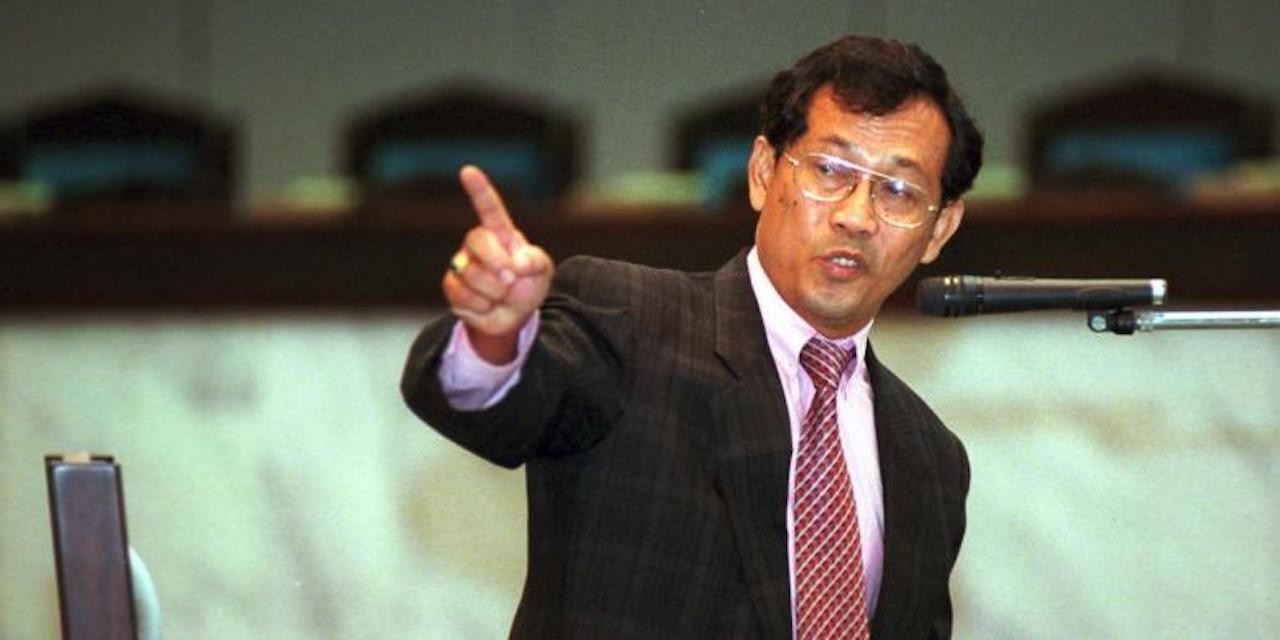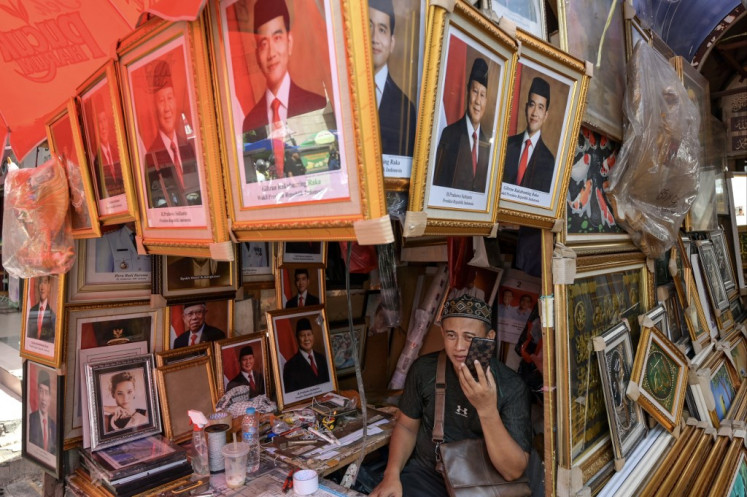Were the Jokowi treason arrests undemocratic? Not really
Historically, treason charges or charges of committing crimes against the state have been used in several contexts. One might still remember clearly how journalist Mochtar Lubis, among others, was indicted by the authoritarian New Order government in the aftermath of the Jakarta riots of Jan. 15, 1974.
Change Size
 Political activist Sri Bintang Pamungkas testifies at Supreme Court in Jakarta on July 5, 2001. Police detained on Saturday Sri Bintang for an alleged treason. (Kompas/Agus Susanto)
Political activist Sri Bintang Pamungkas testifies at Supreme Court in Jakarta on July 5, 2001. Police detained on Saturday Sri Bintang for an alleged treason. (Kompas/Agus Susanto)
O
n Dec. 2, the National Police apprehended 10 political activists, including musician Ahmad Dhani and artist Ratna Sarumpaet, allegedly for treason charges. The activists were taken for questioning to the National Police Mobile Brigade (Brimob) headquarters in Depok, West Java. Seven of them were acquitted the following morning, however, three of the activists were still detained for questioning (The Jakarta Post, Dec. 3, 2016).
Following her release, Sarumpaet pointed out in a televised interview that her arrest reminded her of the New Order regime, where political repression was rampant. Furthermore, she stated: “nothing has changed [since the New Order]. They said they wanted to reform the police, but where is the reform? I was framed, detained, and falsely acquitted,” according to Kompas (Dec. 3).
The statement brings us to the puzzle, does the state have the authority to detain people over charges of treason, defaming the government or mocking the head of state? Are the laws being used to charge the 10 activists—articles 107, 110, 87, and 207 of the Criminal Code—identical to the authoritarian practices of the New Order? Or to be more precise, are they undemocratic?
The articles 107, 110, 87, and 207 of the Criminal Code were established to prevent crimes against the state. Its utilization by the police several days ago was a completely legal and democratic process, and it is part and parcel with the state’s capability—and responsibility—to survive and protect itself.
Historically, treason charges or charges of committing crimes against the state have been used in several contexts. One might still remember clearly how journalist Mochtar Lubis, among others, was indicted by the authoritarian New Order government in the aftermath of the Jakarta riots of Jan. 15, 1974. The arrest of Lubis and others were considered examples of authoritarian practice by the Soeharto government. It is easy, however, to forget that the law was also used in non-authoritarian regimes.
One of the most prominent examples in Indonesian history was the state’s response against the “Oct. 17 Affair”, at the height of the so-called Constitutional Democracy period. On Oct. 17, 1952, a crowd of approximately 30,000 civilians gathered near the parliament building in a surprise demonstration. The protesters were calling for the dissolution of the parliament, a result of a three-month-long contestation between the government and the military over the Indonesian Army’s autonomy. The crowd themselves only dissipated after Soekarno personally gave a speech to the masses, refusing the demands.
Several hours later, 17 Army officers came to the palace together with a column of tanks and armored personnel carriers—whom, according to Herbert Feith, directed their cannons towards the palace while President Soekarno was in the building—perhaps in a show of force. The officers also asked Soekarno to disband the parliament, but to no avail. Later, it was discovered that some of the disgruntled Army officers were behind the demonstration, and as a result Army chief of staff Col. A.H. Nasution and two other high-level Army officers were dismissed by prime minister Wilopo on Dec. 2, 1952.
The Oct. 17 Affair case perfectly illustrates that even the members of the Army, which is part of the state apparatus itself, can not escape this rule. All individuals, regardless of position, are subject to the laws regarding crimes against the state. Being a soldier does not make a person immune to the possibility of being charged with conspiring against the state.
In his book The Concept of the Political, German jurist and political theorist Carl Schmitt elucidates that a state has the authority to identify and prosecute enemies, both foreign and domestic, through the principle of jus belli—the law of war. This authority is directly related to the nature of the state as a political entity, where sovereignty is embedded in the state itself in order to effectively function
According to Schmitt, it is the task of the state to maintain peace within the state and its territory, so it has to be able to act upon individuals or groups that threaten security and order through defining them as enemies of the state. In other words, the state has the capability to differentiate “friend” or “enemy.”
The state’s capabilities may include outlawing certain acts (such as treason and sabotage), dissolving rebellious notions through police actions, or declaring wars. Without these capabilities, the state will disappear as a political entity, thus negating the raison d’etre of the state itself, which is to uphold law and order. This is true in all states, whether authoritarian or democratic.
Sovereignty is an essential part of a state’s power to function properly. Furthermore, the state’s capability to project and uphold its sovereignty is not limited to only treason charges. One of the most important features of a democratic state is its capacity to declare a state of emergency or a state of war. During a state of emergency, the state is allowed to rule by decree, or to enact laws without the approval of the legislative assembly. These capabilities are exclusively reserved for the state in responding to emergencies such as natural disasters, quelling rebellions, or maintaining domestic stability in times of crisis.
Consequently, it will be a mistake for us to consider the existence of the articles regarding crimes against the state as a feature of an authoritarian state or to perceive them as undemocratic. Maintaining the state’s capability to preserve institutions, namely democratic ones, is essential in the process of preserving democracy. Therefore, the notion of preventing crimes against the state is inherently democratic.
***
Norman Joshua is a PhD student at the Department of History, Northwestern University, United States.
---------------
We are looking for information, opinions, and in-depth analysis from experts or scholars in a variety of fields. We choose articles based on facts or opinions about general news, as well as quality analysis and commentary about Indonesia or international events. Send your piece to community@jakpost.com. For more information click here.









